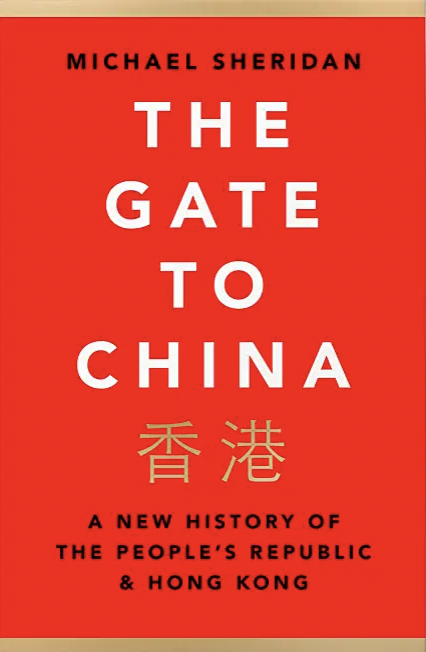
Hong Kong: Freedom under Communist regime

The rise of China and the fall of Hong Kong to authoritarian rule and the outlook for freedom under the communist regime are told with complete insight in this new history by Michael Sheridan, drawing on eyewitness reporting over three decades, interviews with key figures and documents from archives in China and the West.
Sheridan’s research ranged from the scholarly recollections of Mark O’Neill of assignments in Beijing and Shanghai to the bitter insights of Peter Humphrey, who left Reuters for a career in corporate investigations and ended up in a Chinese prison on trumped-up charges of breaking data laws. “Working in archives in Cambridge I came upon letters from Anthony Grey, who was held hostage in Beijing for 27 months during the Cultural Revolution, thanking Sir Percy Cradock, the media-averse Foreign Office Sinologist, for working tirelessly behind the scenes to secure his release in 1969. I was able to call on Jane Mcartney, who beat the world with her snap on the death of Deng Xiaoping, for an accurate account of his last days.
Sheridan takes us to the earliest days of trade through the Opium Wars of the 19th century to the age of globalisation and the handover of Hong Kong from Britain to China, ending with the battle for democracy on the city’s streets and the ultimate victory of the Chinese Communist Party.
We learn from private papers that Margaret Thatcher anguished over the fate of Hong Kong, sought secret American briefings on how to handle China and put her trust in an adviser who was torn between duty and pride. However, the deal they made with Beijing did not last.
The Chinese side of history, emerges from memoirs and documents, many new to the foreign reader, revealing how the party’s iron will and negotiating tactics crushed its opponents. Yet the voices from Hong Kong people – eloquent, smart and bold speak out here for ideals that refuse to die.
The Gate to China, tells how Hong Kong opened the way for the People’s Republic as it reformed its economy and changed the world, emerging to challenge the West with a new order that raises fundamental questions about progress, identity and freedom.
The continuing Hong Kong protests by anti-government demonstrators including the peaceful march in June 2019 by an estimated 2 million of the city’s 7 million people, young and old , rich and poor, prompted Beijing to imposed a draconian national security law, arrested leading democrats and suppressed most of the freedoms that had been guaranteed until 2047 by international treaty with the British. Beijing’s attempt to fatally inept Hong Kong proxies to restrict freedoms and ensure that the promise of meaningful universal suffrage was never fulfilled. Sheridan looks into Beijing’s increasingly draconian control of Hong Kong and offer perspectives on the outlook for freedom under China. The Gate to China, is an authoritative history of Hong Kong and its relations with the UK and China Both Britain and China repeatedly failed to consider the opinions of Hong Kong’s people. Both mother countries patronisingly assumed that Hong Kong residents cared only about money, not freedom. The failing meant more than a century of British rule inflicted on Hong Kong with the virus of freedom and an appreciation of the rule of the law without allowing anything close to full democracy and despite efforts from Chris Patten the last British governor neither the Chinese leaders in Beijing nor the business and civil service elite that do their bidding in Hong Kong ever understood the attitudes and desires of ordinary Hong Kong citizens.
The Gate to China: A New History of the People’s Republic and Hong Kong by Michael Sheridan, William Collins £25/OUP $29.95, 512 pages.

